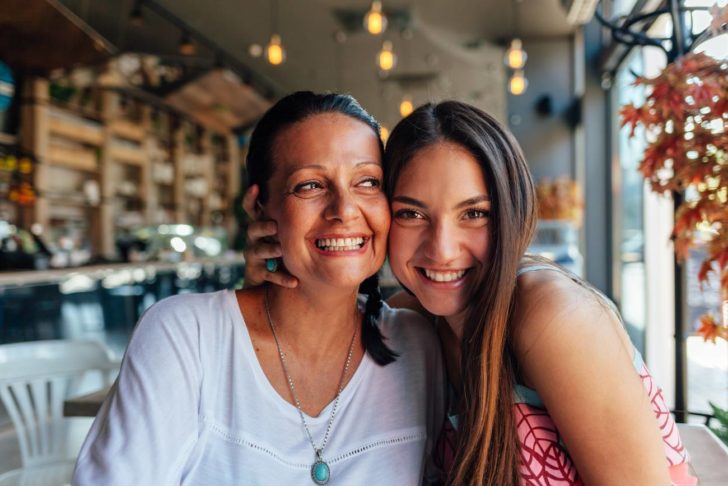This story originally appeared at Goodfullness by Anastasia.

Oscar Wilde once said, “All women become like their mothers. That is their tragedy. No man does. That is his.” While the playwright’s witty line does get a few laughs, it turns out that there is some truth behind his statement.
A study conducted by prominent UK plastic surgeon Dr. Julian De Silva found that women start to turn into their mothers around age 33. He conducted his research by first examining the average age for women giving birth to their first child in the UK. Currently, the average age is 30. From there, Dr. De Silva went on to gather 2,000 participants and asked them questions
with regard to starting their families, as well as questions about their own parents, and the relationship they share with them.
The extensive interviewing helped the doctor discover that most women admitted that they stopped “rebelling” against their mothers around the average age of 33, coupled with the revelations from other female participants that admitted they even began to act and emulate their mothers around 33 as well.
Unsurprisingly, Dr. De Silva was able to make a connection in this behavior shift to childbirth and first-time moms developing their parenting styles. This can go either way as attribution to women mirroring their own mother’s parenting style, or simply women relying more on their mothers for advice as they take on the grandma roles.

Of course, this isn’t just strictly reserved for women. Men experience something similar, demonstrating behaviors similar to their fathers as well.
In the same study, Dr. De Silva found that on average, men become first-time fathers around 33.5 years of age in the UK. And similar to their female counterparts in the study, they too begin to emulate their own fathers’ behaviors not long after the birth of their child. It’s very interesting to discover these patterns of behavior. And it’s definitely something that we should embrace, even if our own relationships with our parents aren’t perfect.
“We all turn into our parents at some point in our lives – and that is something to be celebrated. Becoming parents in the main trigger and lifestyle factors are also important,” Dr. De Silva explained.
The doctor thinks that it’s something we should live with, especially since the findings can cause us to question our physical appearances as well.

“It is an inevitable part of aging but a process lots of people want to put off for as long as possible. It is one of the reasons why the average age of first-time cosmetic surgery is coming down for both the sexes too,” Dr. De Silva said.
While none of us want to admit that eventually, we become like our parents, his research still hits very close to home. We can’t run from our parents’ influences on our lives no matter how hard we might try when we’re younger. What are your thoughts? As you’ve gotten older, have you noticed any changes that make you shudder when you realize you’re becoming like one of your parents?













